What’s the difference between capitalism and a free market?
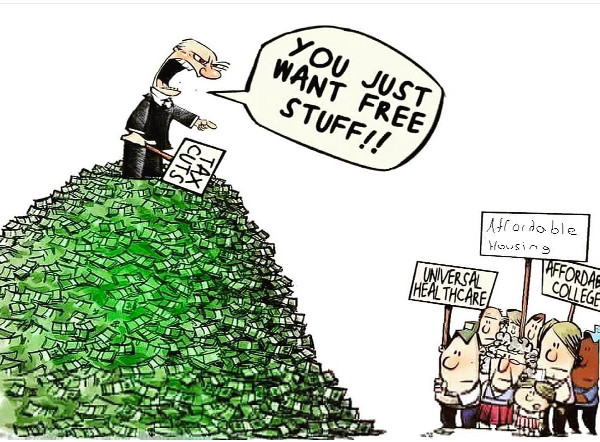
People usually conflate the two, but I want to try to persuade (mainly the right) that capitalism is nothing like a free market, and (mainly the left) that there’s nothing wrong with a truly free market.
There’s a distinction provided in David Graeber’s Debt: the first 5000 years between a commodity-based economy and a money-based economy. It’s from Marx, in Capital (you can agree with Marx’s critique without agreeing with his proposed solution), but Marx writes in dense, academic terms. I think it’s a concept that could do with translating for a wider audience. Here’s an attempt:
A commodity-based system is represented by C-M-C, and a money based system by M-C-M‘.
C-M-C means that someone produces a commodity (C) – i.e. a useful product or service, and exchanges it for money (M), which is then used to purchase another commodity (C) that they can’t produce themselves. This is just a normal, free-market model that has been used for millennia. People are free to produce what they want to produce, free to sell it for a price that they agree with a buyer, and free to use the exchange medium they get for it (whether it’s legal tender, bank credit, crypto or mutual credit) to buy whatever they like. No skewed market, no coercion, no central control.
M-C-M‘ is the capitalist model. It’s a relatively recent invention. Someone has money (the more they have, the more useful this model is to them; and the more they have, if you trace the history of its acquisition, the more illicit it’s likely to be), which they invest in the production of commodities, to obtain more money. The ‘ on the end of the final M is crucial. It signifies that M‘ is more than M. This is the really damaging part – it ensures that wealth will concentrate, via extraction, and that the economy has to perpetually grow, and therefore destroy ecology.
A mutual credit trading system (which we’re developing with the Open Credit Network) is firmly part of the C-M-C economy. And lots of small, private businesses fall into that category too.
M-C-M‘ can never be a free market, because the concentration of wealth that it inevitably brings will overflow into the political system and mean that the state will continue to skew the market in favour of big capital. That’s exactly what’s happened. A Starbucks will always pay far less tax than a local, independent coffee shop in any community it’s situated in anywhere in the world. Tax is only one of the many ways the state supports big capital (protection for their patents is another; giving monopoly control of the money supply to banks is another; ultimately bailing them out if they screw up another). Take away the state prop for the corporate sector, and I think ‘economies of scale’ will be revealed to be an illusion.
I think it’s perfectly possible to be a free-market anti-capitalist – that’s exactly what Kevin Carson (one of my favourite writers) calls himself. For me, the mutual credit, and especially the Credit Commons is an attempt to replace the failed M-C-M‘ model experiment by reverting to the C-M-C economy, and that has only really become possible with the internet.
[Workers often think – or are fooled into thinking – that the rich must have worked hard to become rich, because they live in a C-M-C world. Capitalists are fully aware that other people have worked for them to get rich, because they operate in a M-C-M‘ world. They know that it’s not work, but money, that brings them money. A microscopic minority of the super-wealthy did actually work hard – Bill Gates, for example – but it was still the work of others that made him super-wealthy.]
Then we have the libertarian position. It’s this: there are 2 capitalisms – free-market capitalism and crony capitalism. In free-market capitalism, business trade freely with each other without state interference. Everything will then balance out – there will be no monopolies, inequality or injustice, which means there can be real democracy. But with crony capitalism, wealthy individuals corrupt the political system and create an alliance between the state and corporations. The state then supports multinationals in the ways mentioned above – but there are many others. If we could prevent crony capitalism by shrinking the state, everything will be fine.
However, another viewpoint is that if the means of production is owned by people who do no work, in an M-C-M‘ model, then wealth will always concentrate, because of the M’. Concentrated wealth will inevitably build institutions that look very much like a state (like the WTO, IMF etc.) – with regulations, propaganda and preferential treatment for the M-C-M‘ model and its beneficiaries, and with ultimate recourse to violence if people transgress. And then we’re back to crony capitalism. So from this viewpoint, any kind of capitalist, M-C-M‘ model will ultimately result in crony capitalism, and destroy democracy and ecology.
I guess none of us want crony capitalism, but does any kind of M-C-M’ always result in crony capitalism in the end? I think it does. But one thing I’m sure of – capitalism can never be truly a free market.
The views expressed in our blog are those of the author and not necessarily lowimpact.org's
8 Comments
-
1Eloïse Sentito August 6th, 2019
Absolutely. Especially: ‘This is the really damaging part – it ensures that wealth will concentrate, via extraction, and that the economy has to perpetually grow, and therefore destroy ecology.’
-
2Eloïse Sentito August 6th, 2019
(So as I understand it, money creation as debt at interest acts as a locking mechanism within which we cannot break out of M-C-M’ and concurrent growth. Since the total percentage of money created thus has surged to ~97% of all money in the neoliberal period, capitalism’s squeeze has become all the more widely felt as it exhausts the commons and cheap labour supplies. Grace Blakely argues usefully in the New Statesman for the ‘definancialisation of the markets’, which seems to me a good phrase for what we’re all talking about. The label ‘socialist’ doesn’t sit perfectly for many of us who value plenty of autonomy, but surely most of humanity would welcome properly distributive markets fairly regulated by fair states, and so positive monetary systems seemingly offer a solution around which most factions could cohere.)
-
3Dave Darby August 7th, 2019
Eloise – agreed. Plus the word socialist is most often associated (I think) with state control of some sort, rather than grassroots economic development. In fact, the public sector unions (Unison) in Preston have come out against the Preston model, because it seems they’d prefer local businesses serving publicly-owned ‘anchor’ institutions (hospitals etc.) to be run by the public sector rather than by local co-ops (which they seem to see as a back-door to capitalist ownership). I think this is misplaced – especially if co-ops have good asset locks (which most building societies didn’t).
I don’t think the C-M-C model has any ideology – it’s just the best way of running an economy. There’s no reason that it should repel the right. M-C-M’ is suicidal. Let’s go back to our roots and recognise that capitalism was a failed experiment (hopefully before it destroys ecology to the point that it won’t support us any more).
-
4Wally W Day February 9th, 2022
I’m very impressed with this simple breakdown of the differences. Other articles I’ve read are too vague and really don’t give the reader a definitive definition.
However, it does seem to me that the M-C-M model is geared better for innovation.
Don’t get me wrong, I’m sure someone can think to themselves, “Well, if I make my commodity better, then I can get more money to use for more (other) commodities.” However, someone who is money oriented would have more natural incentive to build a better mousetrap and sell it for even more money.
And that’s why the U.S. seems to be the world’s innovation leader.
I think this is an argument *for* (regulated) Capitalism, even if it might be somewhat hurtful to some people/groups.
-
5Dave Darby February 10th, 2022
Wally – I think that argument only works if you completely ignore what’s happening to ecology, which is an existential threat to us.
You left the ‘ off the M-C-M model, and it’s the ‘ that’s the real killer of ecology.
I don’t think that gearing our economy to suit those who are ‘money oriented’ is a good idea, considering the growing problems facing humanity.
-
6Peace Vegan April 16th, 2022
Thank you Dave for your great essay. I would like to include nature or ecological world into the picture. So far we have observed and formulated our worldview and actions (i.e. “the economy”) in only human-centric interactions without considering the independence among living beings and non-living things on earth. If we are to be wise and considerate enough, there are “untouchable” things that no matter how much ingenuous and innovative we and our economic activities have become, can be sacrified, under whatever brand, be it “truly” free market or C-M-C, not to even mention capitalism. We can name a few such invaluable treasures we’re inheriting from billion years of evolution: fresh air – in which oxygen is produced in majority thanks to phytoplankton in the ocean and plant photosynthesis on land, clean fresh water, top organic soil, intact rainforests, the biodiversity of plant and animals, a stable climate, etc… These things in no way should be turned into “products” and “traded”. We don’t possess anything, and we have to give it all back when we pass away. For the sake of living meaningfully and be responsible for coming generations, we should only take minimally from nature with gratitude to suffice our righteous needs and give it back in some ways. If we ever contemplate lives in circle with everything feeding into everything else, we can abandon our insignificant existence and learn how nature works. This time hopefully not only from anthropological perspective.
-
7Dave Darby July 7th, 2022
Hi Peace Vegan. Absolutely. The capitalist M-C-M’ model has a growth imperative (due to that ‘ after the final M) – it’s just gambling, but unlike the gambling industry, where most people lose, everyone wants a return, which forces GDP to perpetually grow to achieve that. This is the main force that’s destroying nature. On the other hand, a free-market C-M-C economy isn’t forced to perpetually grow, meaning that we can provision ourselves with the things we need without destroying nature.
-
8Marcia McGrail September 18th, 2022
Hello Dave, I was saddened to read about your recent health scare but gladdened to discover that you have recovered sufficiently to return to the treadmill.
It is interesting to read that ‘we can’t go on as we are’ and ‘things have got to change’ with Peace Vegan listing the miraculous symbiosis of irreducible complexity within the biosphere. Billions of years? Putting together Greenland and Antarctica’s ice cores, sun’s heat death, dearth of helium from uranium decay etc etc etc the latest James Webb Telescope signal images (that the scientists colour in to make it more palatable for the public – so more pure imagination for the gullible there then, eh?) suggest a quick doubling of previous estimates plus another few billion eons for good measure to round it all up nicely. Should get joe public nodding sagely that the scientists know what they’re talking about. Which much of the time they don’t. Which includes the age of the universe.
My point is that ‘righteous needs’ are as a result not of mutational chance and economic vagaries but of a Creator who knows exactly what we need. The initial ‘very good’ verdict has been hijacked by our own inability to know what is good for us whether it be food, money, work, relationships [add other]. Whether CMC, MCM or any other acronym you can think of, if humans have a hand in it, it will be a disaster. Let’s try God’s Way..it can’t be any worse.




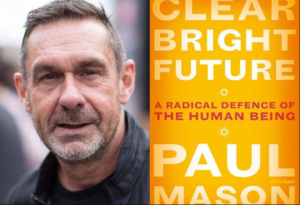 Revisioning postcapitalism: 10 questions for Paul Mason’s ‘clear bright future’
Revisioning postcapitalism: 10 questions for Paul Mason’s ‘clear bright future’
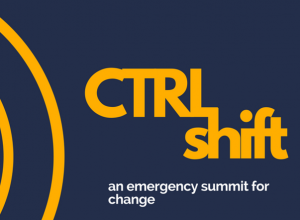 Reflections on the CTRLshift gathering – an emergency summit for change
Reflections on the CTRLshift gathering – an emergency summit for change
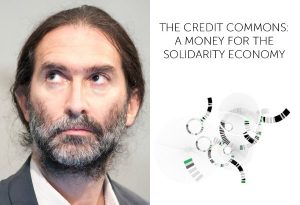 How to build a global, moneyless, interest-free trading system: Matthew Slater of the Credit Commons Collective
How to build a global, moneyless, interest-free trading system: Matthew Slater of the Credit Commons Collective
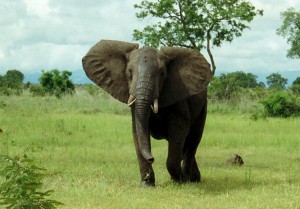 The elephant in the room is capitalism. Maybe.
The elephant in the room is capitalism. Maybe.
 Can elections really change anything?
Can elections really change anything?
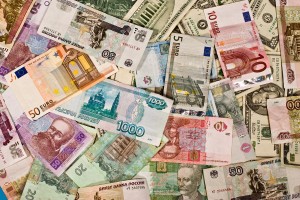 What I’ve discovered about the money system and how the world is run, since working with the Open Credit Network
What I’ve discovered about the money system and how the world is run, since working with the Open Credit Network
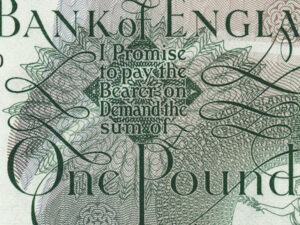 Low-impact money
Low-impact money
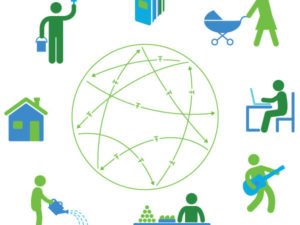 Mutual credit
Mutual credit
 Commons economy
Commons economy
 Philosophy
Philosophy
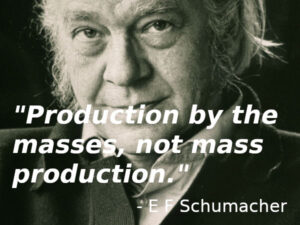 Small is beautiful
Small is beautiful
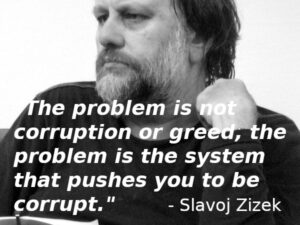 System change
System change
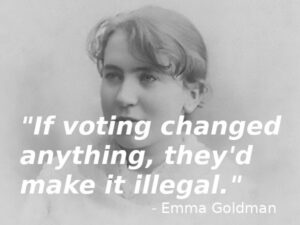 The 'democracy problem'
The 'democracy problem'


